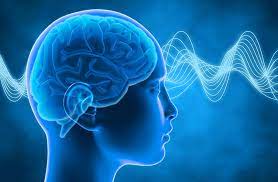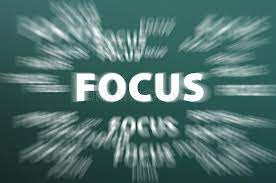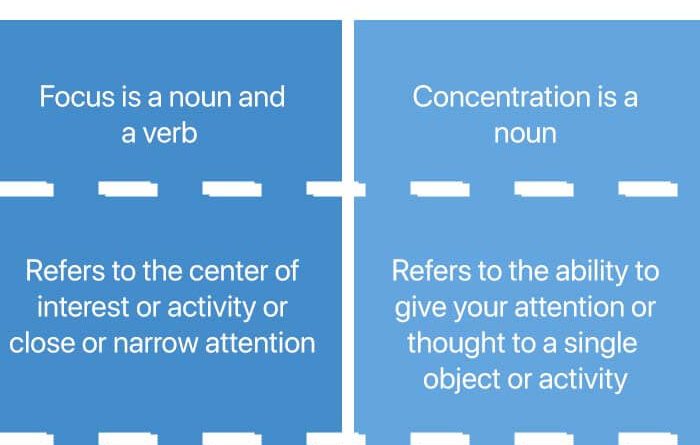Thursday thoughts: Improving concentration and focus
Earlier this year, a barrister friend and I met for dinner. Like me, she practices family law. We are both exceptionally busy. During the course of the evening we both, independently, mentioned the pile of books we had each accumulated but not got around to reading. We, each, noted that we were, generally, voracious readers and previously could devour two to three books in just a week. So, what had gone wrong in recent years?

Work of course was a big factor. The average public law family case contains thousands of pages of documents which have to be read, digested and worked from. After a long day straining your eyes reading such a hefty court bundle, in print or on a computer, it’s not surprising that the thought of reading for pleasure is not exactly an enticing one.
Then there is the sheer volume of work at the family bar, especially currently.
These were obvious explanations for the reduction in reading for pleasure. But in talking about it, both of us also admitted to another reason – an increasing inability to concentrate on things (outside work)for too long. After focusing hard on a court bundle, there’s little capacity left to concentrate on a work of fiction, we decided. It’s understandable.
But the problem is a bigger one. The decreasing capacity to focus and concentrate isn’t just confined to family law barristers. Many people, in different lines of work, will say they’re just too tired to read that book or that lengthy article in a magazine, or to listen to that long podcast, follow that big series on Netflix. Too tired is a good explanation to ourselves. It makes us feel better; it’s not me, it’s the damn work making me tired. It ties up nicely with: I’m too busy to pursue that hobby I used to love because it requires too much concentration and I just don’t have that ‘right now’.
Unfortunately the ‘right now’ can continue to expand until it becomes a default position. We become too restless to sit in a cinema and watch a three hour film, or listen to that hour long talk or learn a new language. Anything that requires our complete focus gets shifted down the ‘to do ‘ list with any number of the excuses above, until everything needs to be bite-sized for us to be able to deal with it.
One barrister even tweeted recently that he finds it increasingly difficult to follow news stories in newspapers. He wondered if he has simply become too accustomed to getting his news in 280 Twitter characters and everything else longer just seems wearisome .

I’ve always prided myself on my ability to concentrate in the most trying of situations and even during bouts of exhaustion. But even I have felt the diminishing of this ability recently. So, I set about trying to improve the situation.
Here are a few ideas below.
I’d love to hear your tips too.
5 tips that can help
- Cut down on the over stimulation. In the modern world we are always expected to be switched on. Our minds, all our senses, our very being is constantly being violated by the outside world, not the natural world which replenishes but the man made world which mostly depletes. Through our smart phones, iPads, laptops, iPods, television, advertising, we are constantly bombarded with information, propaganda, social engineering, news, views, reviews, opinions – to the point where everything and nothing goes in. It all just becomes a big, cacophonous, tinnitus level, noise. We can’t extract the valuable from the chaff.
Tech detox is a real thing. Try it. Even switching off your devices for a few hours a day can be helpful. We don’t have to be ‘on’ 24/7.
2. Spend time alone. Whether you take a walk on your own around the local park, take 20 minutes out to meditate or write in a journal or just stare out of the window, learn to be alone so you can listen to yourself instead of the incessant chatter of the outside world. Aldous Huxley said that : ‘People intoxicate themselves with work so they won’t see how they really are.’
Constant noise is not unlike that intoxication by work. By always hearing the noise from outside, it’s easy to drown out the cries from inside. Thinking is a form of concentration and focus in itself. There is much to be said for mulling things over. But equally it’s just as good to allow your mind to do nothing, to rest and just be. We are, after all, human beings not human doings. We don’t always have to be doing something and we don’t always need to be switched on or be stimulated to the point of blowing up.

3. Switch off notification alerts. Whether it’s the ping of your email alerts, the bell for your Facebook/twitter alerts to let you know some stranger has liked your post about a cute kitten, just turn them off.
This tip goes hand in hand with –
4. Take a break from social media. Again, even for a few hours a day (preferably days at a time and ideally completely) – turn it off. Alerts, pings, rings on your phone, email, Twitter, Facebook, Instagram, Tik Tok, they all serve to divide your attention. As you tend to the demands of each of these platforms, your mind also jumps from topic to topic, emotion to emotion, opinion to opinion, stress level to stress level. Your focus/concentration fragments dozens of times throughout the day. Over time, it becomes harder and harder to bring it all together when you need to focus on just one thing. Emails and social media can become addictions to the point where you can’t fully focus on any task that you do without getting itchy fingers to take a quick peek at what your Instagram page is doing.
Emails are rarely well considered communications. They are mostly slapdash, initial, half baked thoughts from people. Few require your attention straight away. By immediately answering the dozens that come in each day as soon as they come in, your mind will jump from case to case, subject to subject. Slowly but surely, your ability to think carefully about one case or one subject will begin to reduce.
So, set yourself times during the day when you will deal with the emails you’ve received that day. Perhaps you can set aside 30 minutes in the morning, 30 at lunchtime and 30 in the evening. Similarly, set a time to deal with your social media. Post what you need to, read what you want and at the end of your allotted time, switch it off and go back to real life.
The ideal scenario would be to take a complete break or an extended one. After about seven days of no social media the improvement in your concentration levels is very noticeable. But few of us either can break completely or even want to. We may just enjoy our social media interactions. Social media may be a means to promote ourselves and our work. Similarly, we may need to respond quickly to emails.
So, short but regular breaks can assist. They can, at least, help us resist every new distraction that comes up so our focus isn’t scattered over every hour of the day.
5. Focus. When you do anything, whether it’s writing an opinion or cutting a tomato, consciously do it as if your life depends on it. Don’t multitask. Do it precisely, carefully, with dedication, as if it’s the most important thing you could be doing at that moment. Fake it until you can make it. Do any task like this enough times and it will become a habit. Over time it can become your default setting. Concentrate on it even if it’s the most boring thing to do. Boredom is good. Boredom allows your mind to wander in creative directions or simply to rest. Like a battery recharging, the bored, unstimulated mind will gather its forces and rebuild your ability to concentrate.


